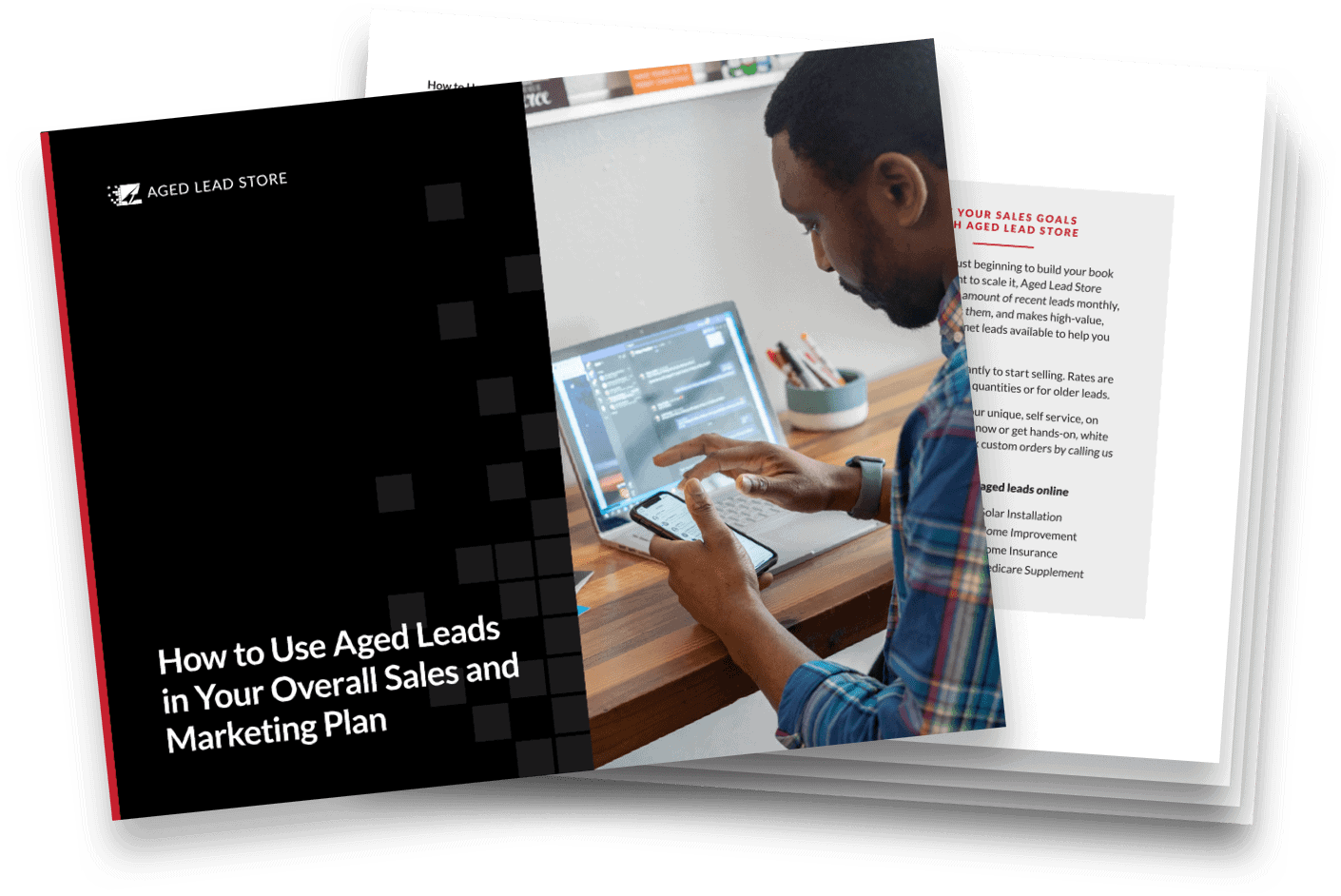When you purchase shared leads—leads being worked by who knows how many other insurance agents—you may spend $7 to $10 per lead. If you splurge on exclusive leads, your price per lead may balloon to anywhere from $15 to $25.
It’s a significant investment that only feels larger when you reach answering machine after answering machine as you manually dial each number. If you only ever work real-time leads like these, you can end up pretty frustrated by the low return on such sizable lead investments. But aged leads can offer another tool for agents looking to lower their costs and their sales competition.
What Are Aged Leads?
Aged leads are leads which are 30, 60, or even 90-plus days old. Like all sales leads, aged leads are the result of an interested customer filling out a paper or online form or responding to some other kind of sales message. These leads may have previously been sold to other agents as exclusive, shared, or real-time insurance leads.
Working aged leads into your sales process can offer several advantages on both cost and sales competition. The main difference is they’re just a bit older.
Lower Cost, Higher ROI
While you may spend up to $25 for a fresh lead, aged leads can be had for a much lower cost. Many are sold for around 75¢ per lead.
Here’s how things might work out if you had $1000 to spend on leads. Let’s assume you sell to 1 in 7 of your exclusive leads, yet only 1 in 60 of your aged leads. With this budget you can make about 6 sales from your exclusive leads. But you can make 22 sales from aged leads with the same budget.
Your lead buying budget can actually take you farther with aged leads than exclusive, fresh leads. Why is this?
The aged lead represents someone who was once, at some point, interested in ordering. They just haven’t been sold yet. Working with aged leads gives you a cost-effective way to speak to someone who has interest in ordering. With the right process, working aged leads like these can lead you to a sustainable and profitable business.
Less Competition
Aged leads benefit from a certain exclusivity that real-time leads do not. When a prospective customer fills out an information card at a booth or enters their information into an online quote form, they are often bombarded with sales inquiries over the next week.
However, 95% of agents do not pursue leads after the first week. If you purchased an aged lead, you are likely the only person contacting that lead now.
If you can get past his voicemail, you may discover this lead purchased insurance from the first agent who contacted him, or the best phone salesman he talked to that week. But there’s also a strong possibility the sudden flood of unwanted attention turned this prospect off and he bought from no one. In either case, you have an opportunity.
You can find out more about what kind of insurance he ended up ordering. Perhaps you can win a sale with a better deal or better fit of coverage.
Or you can be the lone voice offering options in a less frenzied sales environment, presenting a plan that’s right for this customer.
You won’t always win a sale with an aged lead. You may attempt contact with several times as many leads to make a sale. But the advantage here is the exclusive selling platform you have with this prospect, combined with the lower outbound cost to talk to this lead.
Process
Needing to contact more prospects and work more leads to make a sale, you probably realize that you’ll need to have a process for this to be sustainable. Manually dialing won’t work for aged leads. Luckily, there are a number of inexpensive technical solutions built for just such situations.
An auto dialer can be a life saver, and predictive dialers can help you work through even more leads in the same amount of time. Such systems screen out all the busy signals, no-answers, answering machines, and disconnected numbers, so you can focus on closing that sale with a real person.
Conclusion
When you consider that only 5% of agents are working these deeply discounted leads—which again, were created by inquiries from real potential customers—you have quite a few reasons to consider adding aged leads to your marketing plan.
Once you have a system in place, working these leads can become a sustainable business model on its own, or compliment your existing strategy with fresh leads. Agents who prefer working fresh leads can still benefit from working aged leads when their fresh lead reserves dip. And exclusive aged leads agents can take time to perfect their system and their pitch.













